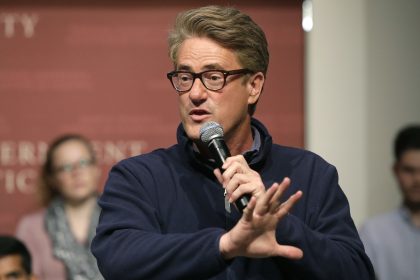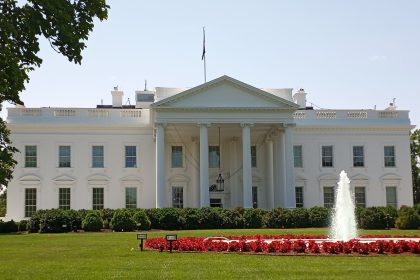College Grads Face Uphill Employment Battle Even as Unemployment Rate Declines

WASHINGTON – June is always an anxious time for new graduates, but there’s never been a summer in memory as stark for new job seekers as this one.
Since the onset of the coronavirus pandemic, nearly 40 million have lost their jobs, and though the reopening of local economies have some of those people back to work, the persistence of the outbreak has made the prospects of a full economic recovery in the near-term tenuous at best.
According to the Labor Department, the unemployment rate for college graduates, 25 years and over, with a bachelor’s degree and higher declined to 6.9% last month as employers added nearly five million jobs to the economy, down from the 8.4% reported for the same population in April, but it is still nearly twice as high as the national unemployment rate was just five months ago.
Prior to the start of the COVID19 pandemic, young adults on the cusp of graduation were set to enter a job market with the lowest recorded unemployment rate of 3.5% in an overall strong economy. Yet, as the pandemic took its toll, they faced dim prospects in industries considered a high risk for unemployment.
As college graduates were forced to end their senior years via remote learning and graduate virtually in their living rooms, the prospect of entering the job market has been tough as employers face the difficulty of staying in business during the pandemic. As a result, many employers are deciding not to hire recent graduates and some are even rescinding job offers to those who had offers prior to the pandemic.
“When I first got laid off, I didn’t want to do anything,” said Sarah Doncols, a recent graduate from Savannah College of Art and Design reflecting on losing her job offer from Uber. “I just lost my dream job two weeks before I graduate[d], I [didn’t] feel like doing anything.”
Doncol continued expressing the shock of the rescinded job offer by putting her professional prospects into perspective.
“Being a new grad is really hard right now because it’s not just that we lost our jobs,” explains Doncals. “We’ve lost in-person classes. We’ve lost seeing our friends, having an in-person graduation. Having a job made me feel some sort of comfort — that at the end of this, it will all be normal.”
Echoing the shock expressed by Doncol, Will Ye from Duke University said that when his job offer with a start-up company in San Francisco was rescinded, he was“emotionally drained” from the experience.
“When you work so hard to get a job offer and it all of a sudden gets taken away, it brings back all those memories and feelings of anxiety of going through job interviews, job hunting, receiving all those rejections,” Ye explained.
As college graduates try to grapple with the newfound reality of a dismal job market, colleges and pandemic-related government aid seek to help graduates in their professional endeavors.
In a report from the Concord Monitor, universities and colleges in the New England area are trying to help students in any way they can.
Colby College in Maine vowed to help its Class of 2020 graduates through its “Pay It Northward” campaign, which elicits the help of the college’s community of parents, faculty, alumni and partner organizations in order to make sure that every graduate has a professional opportunity within three months of graduation.
Similar to Colby College, Beloit College in Wisconsin developed its “Beloiters Helping Beloiters” program in the hopes of connecting Beloit graduates with alumni in the industry they hope to be in professionally. Approximately a third of Beloit’s recent graduates already participate in the program.
While the efforts of Colby College and Beloit College should not be underscored, the reality of helping graduates at bigger institutions with larger graduating classes proves to be a challenge.
Tyler Wentworth, the director of marketing, communication and engagement at the University of New Hampshire’s Career and Professional Success department, believes that the feasibility of colleges helping students is, “a great idea if you [colleges] can do it.”
Wentworth continued, “But guaranteeing that … you’re making a promise that I’m not sure you’d be able to keep, especially with how the landscape has changed …”
On the government’s end, President Trump signed the Coronavirus, Aid, Relief and Economic Security Act, known as the CARES act, back in March that brought $2 trillion into the struggling economy.
From the CARES Act, the government helped provide emergency funds for students and mandated that institutions pay “no less than 50% of these funds to students as emergency financial aid grants,” according to the IRS website.
In the long term, the CARES Act also put a pause on some student loan payments from mid-March to September 30, 2020. Additionally, the law allows employers to have student loan payments as a benefit to provide for employees, however considering the economic downturn, employers may choose to not offer this benefit due to financial strains.
The help that college graduates can get from their colleges and government may be temporary relief and depend greatly on resources available from each of these entities.
But what if recent graduates decided to stay in school instead of trying to find jobs?
Historically speaking, staying in school is a viable solution for those that can afford it even during an economic recession.
According to a 2018 study from the United States Census Bureau, there was a significant rise in college enrollment for two-year and four-year institutions as a result of the Great Recession of 2008.
The study states that, “Enrollment in college increased from 17.2 million students in 2006 through the Great Recession and the years after the end of the recession, to reach 20.4 million postsecondary students enrolled in 2011.”
While going back to school is a good option to pursue, the prospects of going to graduate school are tough considering most colleges and universities are still figuring out how to return to instruction.
The reality for the Class of 2020 graduates is that they, like the rest of the world, cannot predict when they will be able to see real change in their situation.
Economists predict that it could take up to three years for the United States economy to recover from the pandemic. In a recently updated report from the Congressional Research Service, “The full impact [of the coronavirus pandemic] will not be known until the effects of the pandemic peak.”
























